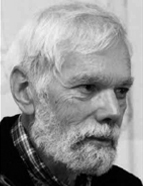

Among his many scientific and cultural accolades are the Augusto Botelho da Costa Veiga Prize from the Portuguese Academy of History (1982), the Alfredo Pimenta Prize (1985), the Pen Club Essay Prize (1986), the Pessoa Prize (1987), the Prix Böhus-Szögyény from the Confédération Internationale de Généalogie et d’Héraldique (1991), and the Latin Union Prize (2007).
As a historian and man of culture, José Mattoso produced an extensive body of work published both in Portugal and abroad, comprising over five hundred titles, including books, pamphlets, articles, conference papers, and contributions to collective works. His Hist ória de Portugal [History of Portugal] (1993), initially published by Círculo de Leitores in eight volumes and later as an "academic edition" by Editorial Estampa, includes substantial sections authored by Mattoso in the first and second volumes. This monumental work remains a pivotal reference in Portuguese historiography at the close of the 20th century. Indeed, the new vision of Portuguese history proposed by José Mattoso, particularly regarding the medieval period, combines rigorous methodology—solidly rooted in historical sources and the latest analytical techniques—with a critical perspective on the factors and processes that shaped the formation and autonomy of the Portuguese kingdom. Beyond social, political and cultural history in its broadest sense, Mattoso's work delves into the gradual construction of national identity. In particular, in his books Ricos-Homens, Infanções e Cavaleiros [Rich Men, Infançons, and Knights] (1st ed., Guimarães Editores, 1982) and Identificação de um País [Identification of a Country] (1st ed., Editorial Estampa, 1985), he examines the factors distinguishing Portugal within the context of the medieval Christian kingdoms of the Iberian Peninsula, as well as the forces that enabled the " creation " of a country marked by strong regional, historical, and cultural contrasts—features still evident today, even if sometimes obscured. In the preface to the 2001 edition, included in his Obras Completas [ Complete Works ] , Mattoso summarised the "fundamental theories " underpinning his interpretation of the origins of the Portuguese kingdom. These included "the cultural and institutional diversity of Portuguese territory," "the role of feudalism in shaping the North and municipalism in structuring the Centre and South," and "the formation of a political entity marked initially by tensions between the monarchy and local feudal powers, which ultimately culminated in the triumph of one of Christendom's most centralised monarchies."
This work is financed by national funds through FCT - Foundation for Science and Technology, I.P, in the scope of the projects UIDB/04311/2020 and UIDP/04311/2020.
